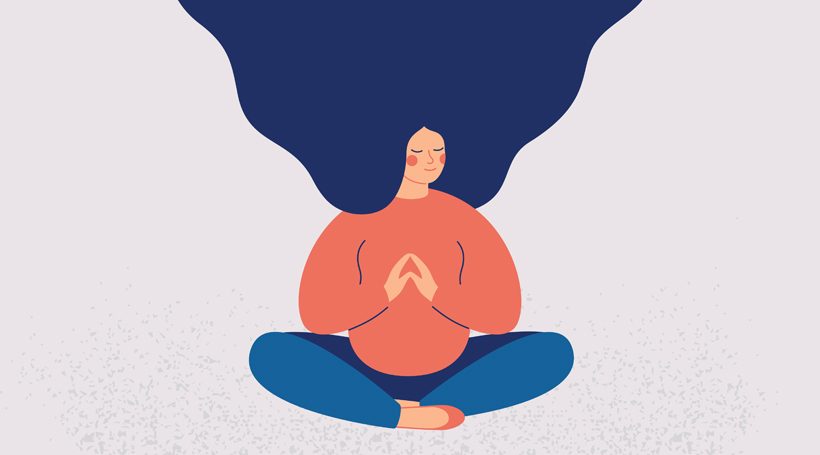From adolescence through childbearing years and beyond, every year brings something new when it comes to women’s health. So much so, that it can be hard to keep up, says Jennifer Naticchia, MD, a family care physician at Inspira Health.

Jennifer Naticchia, MD
“Women tend to be the healthcare leaders for their families and communities, making sure everyone is healthy and taken care of,” she says. “But so often, they let their own healthcare fall by the wayside.”
It’s vital to not only maintain your annual healthcare checkups, but you should also adjust how you approach your healthcare depending on the stage of life you’re in, she says.
“Every stage of life brings a new healthcare focus – whether you’re just setting up your healthcare team, trying to have a baby or managing menopausal symptoms, our needs are always changing,” says Naticchia.
Here’s what you should know about staying healthy at every stage of life.
Your 20s

Camille Green, MD
If you’re in your 20s, it can be easy to assume you’ll be young and healthy forever. But taking control of your health early on is the key to setting up healthy habits for the rest of your life, says Camille Green, MD, a primary care physician at Cooper University Health Care.
“For women in their 20s, it’s very important to see a primary care physician,” she says. “I know that seems like a no-brainer, but at this age, women are transitioning from pediatrics to adult medicine, and there is often a lapse in healthcare.”
Take these years to establish your annual routine care – a primary care physical, yearly gynecological checkups, an annual dermatology appointment and regular dental cleanings. Making this an ongoing practice, says Green, gives your healthcare team the opportunity to screen for and monitor possible medical problems early, like cholesterol issues, depression, thyroid disorders and iron deficiencies.
“It’s the time to take a holistic view of your health, to work with your doctor to create a healthy lifestyle,” she adds. “At this age, preventative care should be your number-one concern.”
Your 30s

Alexandra DeSimone, MD
By the time women hit their 30s, they’re often coming to their healthcare providers as they start to think more seriously about starting a family, says Alexandra DeSimone, MD, a primary care physician at Virtua Health. Their care is split into 2 categories: under 35 or over.
“Women over 35 often have a harder time conceiving and have a higher risk during pregnancy, because there are higher rates of genetic abnormalities,” says DeSimone. “They are more closely monitored at this age and often undergo additional testing. Some women may even want to consider genetic testing prior to trying to conceive, especially if they have a family history of genetic disorders.”
DeSimone recommends that women under 35 see a fertility specialist if they have been trying to conceive for 12 months or more, but that drops to 6 months or more for women over 35. It’s also a good time to really focus on managing pre-existing health conditions like diabetes or hypertension to make sure women have a healthy pregnancy, she says.
But outside of fertility, DeSimone most often sees women coming in for health issues that aren’t physical at all. Especially in the past year, she says the biggest reason women in their 30s have sought healthcare is because of mental health concerns.
“The feeling of isolation is having a negative impact on many women right now,” says DeSimone. “A lot of women this age come in feeling agitated. They don’t have any patience and feel like they have outbursts for no reason, which can be a common symptom of depression. Seeking help for these concerns now can set them up for better mental health down the line.”
Your 40s

Amy Harvey O’Keeffe, MD
If you’re in your 40s, you’ve probably begun focusing on health and wellness in ways you hadn’t before, says Amy Harvey O’Keeffe, MD, an OB/GYN at Capital Health
“Women in their 40s are going through a time of great transition,” she says. “They’re starting to focus a bit more on themselves and their own self care after spending so many years taking care of their families. I see a lot of patients in their 40s who haven’t really ventured into their family doctor’s offices in years because they’ve been so busy.”
Women in their 40s should have an annual mammogram by age 45 to start screening for breast cancer. And the American Cancer Society recently lowered the recommended age to receive your first colonoscopy – that’s now 45. But often, they visit their doctor earlier to address unexpected changes in their bodies, says Harvey O’Keeffe. Many women this age experience hormonal changes associated with perimenopause – symptoms like irregular periods, hot flashes, night sweats and changes in their libido. Because the average age of menopause is 51, many women don’t realize it’s normal to experience symptoms before it actually begins.
“Menopause doesn’t come on all at once,” adds Harvey O’Keeffe. “There are often 5-10 years of symptoms leading up to it. These body changes are often the first thing that drives women back into the doctor’s office to focus on their own health.”
Your 50s

Sipika Tyagi, MD
If you have entered your 50s, you’re now embarking on one of the most crucial times in your healthcare journey, says Sipika Tyagi, MD, an OB/GYN at Jefferson Health – New Jersey. Fortunately, you probably have more time to take care of yourself.
“Your 50s is a beautiful age because you are more mature and more capable of taking care of your health,” says Tyagi. “At the same time, this is when a woman’s body experiences a lot of transition in terms of physical and mental health.”
For many women in their 50s, the symptoms of menopause they may have started experiencing in their 40s will continue and may even intensify until menopause passes, she says.
“This really is the time to prioritize your own health as much as possible,” says Tyagi. “Women in their 50s are not running around as much keeping track of their career, families and personal life, and that puts them in a great position to really take care of themselves.”














